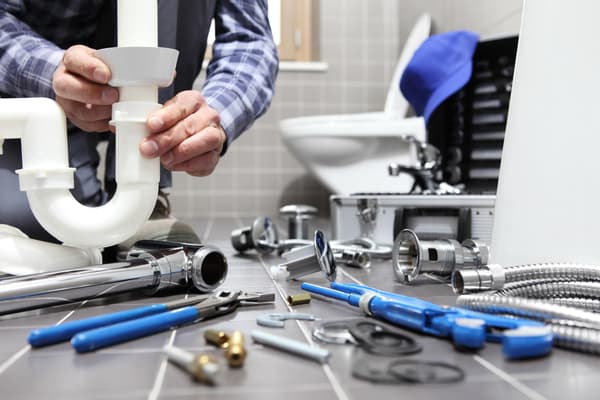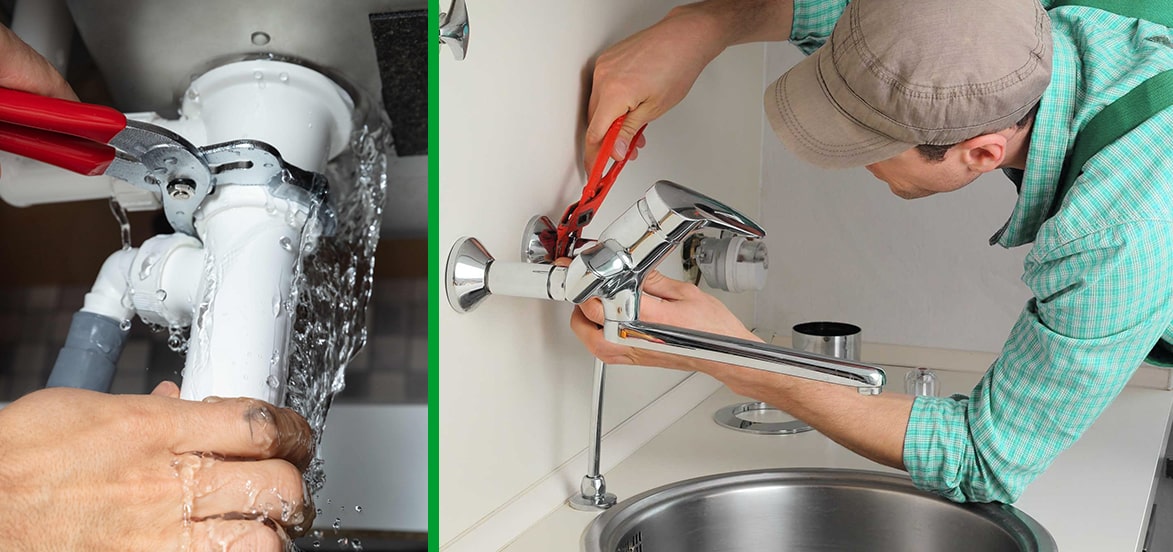Save The Plumbing: Six Critical Errors You Should Avoid
Save The Plumbing: Six Critical Errors You Should Avoid
Blog Article
Presented here in the next paragraph you can get a lot of excellent data related to Ways to Make Your Pipes Last Longer.

The secret to long lasting appliances, unsurprisingly, is proper maintenance. There's no set regulation that can assure your plumbing appliances a lengthy wear, yet you can protect against unnecessary damages and also repairs by preventing poor plumbing behaviors.
You should stop doing these 6 things else you'll keep calling your plumber over for minor faults.
Flushing every little thing
Yes, your toilet drain causes the sewage systems, yet that does not mean you should dispose just anything down the drain. Numerous 'flushable' materials are actually excellent blockage starters, for instance dental floss. Asides keeping noticeable non-flushable products like cables as well as plastics out of your toilet, you need to additionally prevent flushing cotton buds, menstruation products, wipes, daipers and prophylactics down the bathroom drain.
DIYing every little thing
With plumbing, a stitch in time truly does conserve nine. You can prevent a fullblown plumbing emergency by calling your plumber at the correct time.
You may have discovered a couple of plumbing hacks from your papa, but you should understand where to draw a line and also call an expert. For example, you may be able to repair a clog yourself, but you should not attempt to alter a pipe. You could inequality pipelines or overtighten a bolt, causing more injury and also damages than you thought. Calling a plumber is a safe and also cost effective choice.
Utilizing too much drainpipe cleaner
Utilizing a drainpipe cleaner greater than once or twice a month is an indicator that something major is taking place within your pipes. Currently, rather than dealing with the major issue, you go with a quick fix; a fizzy drainpipe cleaner. Rightfully, a drain cleaner will care for the blockage, but at what cost?
The chemicals in a drainpipe cleaner can accelerate the deterioration of your pipelines. Include that to whatever underlying problem is causing the obstruction and you may have to a major issue on your hands.
If you experience way too many clogs, call your emergency plumber as opposed to using a drainpipe cleaner.
Pouring grease in the sink
We understand correctly dealing with oil after a hearty meal is a discomfort. But just putting it away can do long-term damage to your pipelines. "The fat and also oil can obstruct your drain badly enough to require you to call a plumber," describes Dawson. "Plumbing functions best when it's well looked after-- not abused with oil."
Not transforming your dish washer tubes
One very easy means to make certain that you utilize your dishwashing machine for many years is to replace the hose pipe at least once in 5 years. This likewise gets washing machine tubes.
Gradually, food bits, soap and oil can form blockages within your pipelines. Replacing them promptly will stop any presure develop that can harm the internal functions of your dish washer or washing device.
An enhanced steel braided hose pipe does an excellent work of prolonging your device's usage time.
No winter months precautions
Extreme weather are bad for your pipelines, particularly if they're constructed from steel. You need to shield your revealed pipes, and also your water container, even if you have a hot water heater. You must also shut off your yard tube valve and also any other external water networks. These networks are outlets for cold; you pipes can start to freeze from outside if you don't.
How Hard Water Damages Your Plumbing and Appliances
Hard water is no stranger to most households across America. This silent invader affects 85% of homes in the United States every day, wreaking havoc on pipes, plumbing fixtures, and water-using appliances.
Should you become a victim of hard water, you must understand exactly what it is and how it affects your plumbing and appliances. This will help you determine the correct measures to put in place to fix or prevent any problems that may arise.
First off, what exactly is “hard” water?
In short, “hard water” is used to describe water that contains relatively high amounts of dissolved minerals, primarily calcium and magnesium, and a host of trace metals. When rainwater falls from the sky (usually in a pure form), it absorbs the hardness minerals from rocks and soil, which changes it from soft to hard water.
What about my plumbing and appliances?
Mineral deposits from hard water can cause buildup on tubs, shower, sinks, faucets. But that’s only a small scratch of the surface. Those minerals can gradually build up inside pipes, fixtures, water heaters, washing machines, and dishwashers. Once they accumulate in those areas, they can clog pipes and create major problems throughout your plumbing system, from reduced water flow to increased pressure on pipes and fixtures.
This limescale buildup might affect some appliances, causing them to operate less efficiently and wear down faster. And the result? Higher energy bills, more (costly) plumbing replacements and repairs, and damaged appliances.
Keep in mind that certain types of plumbing are more susceptible to clogging than others. Copper, PVC, and PEX pipes are more resistant to hard water buildup and corrosion, but they can still get clogged or completely blocked by scale deposits.
How do I know if my water is hard?
White limescale buildup on plumbing fixtures (or any of the other signs mentioned above) is usually a good sign that your water is hard. If you suspect that you have hard water, you can simply shake up a small amount of dish soap and water in a closed container. If the mixture doesn’t create a lot of suds, you probably have hard water.
The most precise method, however, is to test your water with a DIY test kit (sold online or at local home centers or hardware stores) or send a water sample from your tap to a local lab to be tested. Be sure that you understand the nature of the test, the water condition being measured, and the significance of the test results.
Another way to obtain an estimate of water hardness is to check your annual water quality report to see if your water provider has reported any instance(s) of water hardness in your water supply.
https://www.springwellwater.com/how-hard-water-damages-your-plumbing-and-appliances/

We hope you liked our section about Can Hard Water Ruin Your Appliances?. Many thanks for finding the time to browse our article. If you enjoyed reading our blog entry if you please make sure you remember to share it. Thank you for your time. Come back soon.
Book Your Installation Report this page